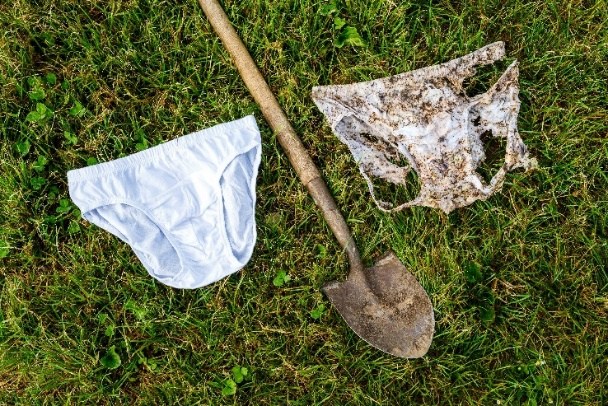Scientists in Switzerland are sending thousands of pairs of white underpants to volunteers, who will then bury them in their gardens as part of a project to examine the state of the country’s soil, Science Focus reports.
The project is being run by the department of plant and microbial biology at the university of Zurich, under the name Beweisstück Unterhose (Proof by Underpants). It sounds like an April Fool gag, but it’s not. Here’s their website.
The one thing that most parts of the world have in common is soil, yet little is known about it as a biome. The aim of the project is to find out more.
The recipients include ordinary people, gardeners, farmers and growers and anyone else with access to a patch of soil. They will receive two pairs of underpants, bury them and then dig them up after one month and two months respectively, photograph them and return them to the university.
That will offer the scientists a picture of the health conditions of the soil in various parts of the country: the richer the soil life, the more likely the underpants are to be degraded, as the (micro)organisms in the soil work on the cotton fabric.
But not just any underpants.
“Apart from the waistband and the seams, our test pants are made from 100 per cent biodegradable organic cotton,” reads the project’s website. “This substance can serve as a food source for various microorganisms in the soil. They eat the underpants with ravenous hunger. The more active microorganisms who live in the soil, the faster and the more holistically the underpants will be eaten up.”
The aim of the project is “to shine a spotlight on the essential but rather unknown and fascinating universe below our feet,” the project explains.
For some participants, the soil they walk on is no more than a surface; for others like gardeners a source of nature; for farmers, a source of income. But for most, the details remain a mystery.
“Soils accommodate billions of bacteria, fungi, insects, worms and other creatures. Their abundance and activity are central features of healthy soils. The more diverse the soil community, the better the soil can function. For soils, functioning means to be able to produce food and raw materials, filter water and protect against natural hazards.”
Alan Hope
The Brussels Times

